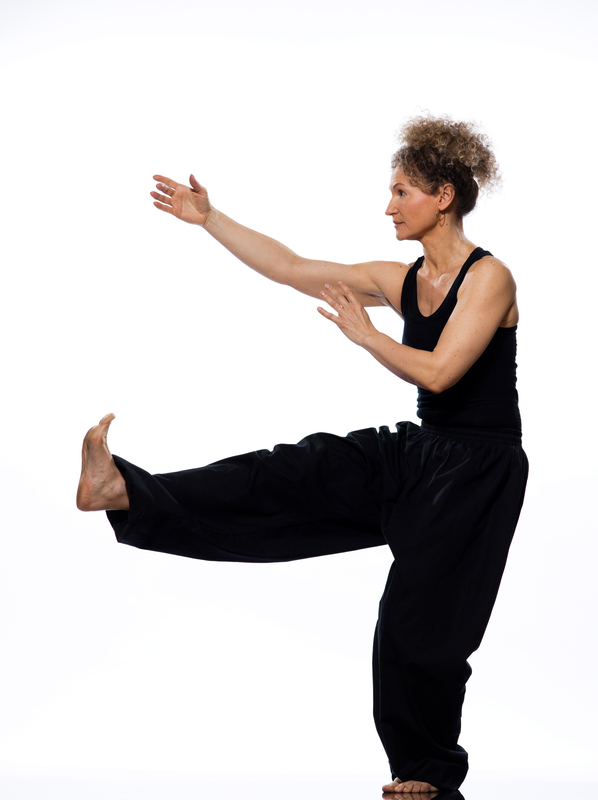 Time for another menopause downer…followed by some good news! First the downer: declining levels of estrogen during menopause tend to reinforce a decline in the body’s ability to naturally metabolize blood fats and its ability to fight off the ravages of oxygen-free radicals, you know, free roaming oxygen ions that can wreak havoc on the immune system. The result is often an upsurge in heart and other metabolic diseases. You can read more about those conditions here.
Time for another menopause downer…followed by some good news! First the downer: declining levels of estrogen during menopause tend to reinforce a decline in the body’s ability to naturally metabolize blood fats and its ability to fight off the ravages of oxygen-free radicals, you know, free roaming oxygen ions that can wreak havoc on the immune system. The result is often an upsurge in heart and other metabolic diseases. You can read more about those conditions here.
Okay, so the good news: it appears that Tai Chi training may help increase the body’s antioxidant defenses in both pre- and post-menopausal women! In fact, in a study published a few years ago in the Journal of Aging Research, investigators noted a marked change in antioxidant markers normally related to aerobic exercise, as well as a decline in a marker for heart disease risk.
For those of you unfamiliar with Tai Chi, it is an ancient Chinese martial art form that combines breathing with smooth, gentle postures. It may look fairly tame, however, having studied Tai Chi for a short period of time, I can assure you that it’s damn hard. Moreover, despite appearances, it is a weight-bearing exercise that not only strengthens muscles but also is on par with moderate intensity aerobic exercise. It has also been shown to improve mobility, flexibility and balance, improve sleep and overall wellbeing, and even enhance the circulation of blood through the smallest of blood vessels.
I’ve written about the effect of breathing on stress and the body’s stress markers. However, it appears that when Tai Chi is combined with slow and deep breathing exercise (i.e. 6 breaths per minutes) overall benefits are boosted. Indeed, two, 75-minute Tai Chi sessions a week combined with two hours of at home practice appeared to do just what the doctor ordered. These sessions involved 10 min of warm up/stretching, 60 minutes of Tai Chi (45 minutes 18-posture Tai Chi and 15 min Tai Chi Fan Style) and an initial check in period. In addition to the slow, rotational, fluid movements (1.5 minutes per motion), the women participating in the study were taught to control their breathing. Over the eight weeks, they also underwent blood and had physical fitness evaluations.
The findings? Tai Chi training improved balance, flexibility and leg extension strength in all of the women regardless of menopausal status. LDL cholesterol was also lowered. And, as mentioned, markers for antioxidant activity increased significantly while a marker for heart disease risk decreased.
Tai Chi is low impact and is especially valuable for women who may not be physically able to boost their aerobic routines. What’s more, once mastered, it can be practiced in the privacy of one’s own home. Once again, the mind-body connection proves to be pretty darn cool and important to health and wellness! This time, it might take some practice but perseverance rules the day! “There is no mystique to Tai Chi Chuan. What is difficult is the perseverance. It took me ten years to discover my chi, but thirty years to learn how to use it. Once you see the benefit, you won’t want to stop.” – Ma Yueh Liang






